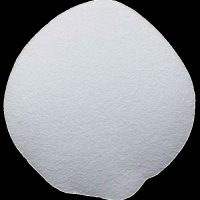What is PVC ?
Polyvinyl chloride, commonly known as PVC, is a versatile synthetic polymer that has found widespread use in various applications. PVC is a type of plastic derived from vinyl chloride monomers and its unique properties make in a valuable material in multiple industries.
PVC is well-known for its durability, resistance to moisture and chemical stability. It is a thermoplastic, meaning it can be repeatedly heated and molded without undergoing significant chemical change. This characteristic makes PVC suitable for various manufacturing processes, including extrusion, injection molding and calendaring.
One of the most common applications of PVC is in the production of pipes and fittings for plumbing, drainage and irrigation systems. PVC pipes are prized for their lightweight, corrosion-resistant nature, making them a popular choice for both residential and industrial use. They have largely replaced traditional materials like metal and clay in these applications due to their cost-effectiveness and ease of installation.
Additionally, PVC is extensively used in the construction industry for siding, roofing membranes, window frames and electrical insulation. Its low thermal conductivity makes it an energy-efficient choice for building materials. PVC’s excellent fire resistance properties also enhance its appeal for construction applications.

PVC or polyvinyl chloride, is a versatile and widely used synthetic thermoplastic polymer. It can be classified into different categories based on its properties, intended applications and additives used in its formulation. The main classifications of PVC materials include:
Suspension Grade, Emulsion Grade and CPVC (Pipe and Fitting Grade)
PVC or polyvinyl chloride, is a versatile and widely used synthetic thermoplastic polymer. It can be classified into different categories based on its properties, intended applications and additives used in its formulation. The main classifications of PVC materials include:
Suspension Grade, Emulsion Grade and CPVC (Pipe and Fitting Grade)
Suspension grade
PVC or polyvinyl chloride, is a versatile and widely used synthetic thermoplastic polymer. It can be classified into different categories based on its properties, intended applications and additives used in its formulation. The main classifications of PVC materials include:
Suspension Grade, Emulsion Grade and CPVC (Pipe and Fitting Grade)
In the context of suspension-grade PVC, “K” stands for the degree of polymerization, which is a measure of the average chain length of the PVC polymer.
- Regular K (K – 67): This refers to PVC resin with a standard degree of polymerization, typically used for a wide range of general-purpose applications. (considered K-Value 67)
- Low K (under K-67): PVC with a lower degree of polymerization, making it more flexible and suitable for applications requiring increased flexibility.
- High K (above K-67): PVC with a higher degree of polymerization, offering increased rigidity and strength, often used in applications where durability and stiffness are important.
There are several different K-Value available in PVC Suspension grade, including:
- K-Value 50-60: PVC resins with lower K values fall in this range. These resins are typically lower in molecular weight and are considered more flexible and processable. They are often used in applications where flexibility and ease of processing are essential, such as in the production of flexible films, cables and certain types of pipes.
- K-Value 61-65: PVC resins in this mid-range of K values strike a balance between flexibility and rigidity. They are versatile and find use in various applications, including rigid pipes, fittings and profiles for construction, as well as in the manufacturing of certain consumer goods and packaging materials.
- K-Value 66-70: Higher K values represent PVC resins with a higher molecular weight. These resins are typically more rigid and offer improved mechanical and thermal properties. They are commonly used in applications where rigidity and strength are critical, such as in the production of window frames, rigid pipes and various building materials
Emulsion (Paste) Grade:
Paste grade PVC is a specialized form of polyvinyl chloride resin known for its high molecular weight and viscosity. It is typically used in the production of PVC pastes, which are thick and highly concentrated formulations of PVC in a plasticizer. These pastes are utilized in applications like vinyl floorings, wall coverings and certain types of coatings, where the PVC paste can be applied to a substrate and the plasticizer is subsequently removed to create a solid, PVC-based material. Paste grade PVC offers excellent dispersion properties and is well-suited for applications requiring adhesion, flexibility and durability.
CPVC:
CPVC, or Chlorinated Polyvinyl Chloride, is a specialized grade of PVC (Polyvinyl Chloride) designed for pipe and fitting applications. It is chemically modified through a chlorination process, which enhances its heat resistance and ability to handle high-temperature fluids, making it suitable for hot water systems, industrial processes and fire sprinkler systems. CPVC pipe and fittings are known for their corrosion resistance, durability and ease of installation due to their solvent cement joining method. This material is particularly valued for its ability to withstand elevated temperatures, making it a preferred choice in applications where standard PVC might soften or deform under heat.
some common applications and uses of PVC:
Piping and Fittings: PVC pipes are extensively used in plumbing, drainage and irrigation systems in both residential and industrial settings due to their corrosion resistance and ease of installation.
Construction Materials: PVC is used for siding, roofing membranes, window frames and electrical insulation in the construction industry. It’s valued for its low thermal conductivity and fire resistance.
Vinyl Records: PVC was historically used for manufacturing vinyl records due to its ability to hold fine grooves and produce high-quality audio.
Electrical Insulation: PVC is a popular choice for electrical wire insulation due to its excellent insulating properties and flame resistance.
Automotive Components: PVC is used in various interior components such as dashboards, seat coverings and door panels in the automotive industry.
Packaging: Flexible PVC films are used for packaging applications, such as food packaging, shrink film and blister packaging.
Medical Devices: PVC is used in medical tubing, IV bags and various medical devices due to its biocompatibility and ease of sterilization
Footwear: PVC is used to make a wide range of footwear, from sandals to rain boots, due to its water-resistant and durable nature.
Consumer Goods: PVC is used in the production of a wide array of consumer goods, including inflatable products (e.g., pool toys), garden hoses and shower curtains.
Signage and Banners: PVC sheets are commonly used for outdoor signage, banners and displays due to their weather resistance and printability.
Vinyl Flooring: PVC-based vinyl flooring is known for its durability, ease of maintenance and wide range of design options, making it a popular choice in both residential and commercial settings.
Cable Insulation: PVC is used as insulation for various cables, including power cables and communication cables, due to its electrical properties and flame resistance.
Medical and Healthcare Products: PVC is used in the production of blood bags, tubing and various medical equipment cohmponents.
Sports Equipment: PVC is used in the manufacture of sports equipment, including balls, mats and inflatable structures.
Furniture and Upholstery: PVC-coated fabrics are used for upholstery, outdoor furniture and awnings due to their durability and weather resistance.
About Viztaar
Viztaar is a tech enabled marketplace that facilitates B2B commerce in bulk industrial raw materials.
By leveraging technology, Viztaar helps buyers find the best prices from sellers across the country thereby optimizing their purchases and improve their bottom line. Buyers get cheapest prices, assured quality and reliable deliveries thereby ensuring complete peace of mind in managing their supply chains through Viztaar.
For sellers, Viztaar provides easy access to buyers on a pan India basis without having to invest in costly sale and marketing functions, acting as their wide reaching distribution network where they can quickly sell their inventory, improve their volumes and focus on optimizing their cash flows.

About Xinjiang Zhongtai
Founded in 1988, Xinfa stands as a versatile industrial powerhouse rooted in China. This diversified enterprise operates across several sectors, including aluminum, coal, electricity, and finance, showcasing a comprehensive portfolio that contributes significantly to the nation’s economic landscape. Xinfa’s journey has been marked by a steadfast commitment to innovation and sustainable practices. Embracing cutting-edge technologies and environmentally conscious processes, Xinfa has not only achieved commendable growth but has also emerged as a prominent player in the global industrial arena.
With a vision that extends beyond mere industrial success, Xinfa prioritizes the integration of responsible practices, ensuring a positive impact on the environment and communities it serves. This dedication to sustainability sets Xinfa apart, reflecting a corporate ethos that values long-term viability and societal well-being. As Xinfa continues to navigate the dynamic industrial landscape, its dedication to innovation, diversification, and sustainability remains unwavering, establishing the corporation as a key influencer in shaping the future of China’s industrial development.

Xinfa produces a range of products, including aluminum, coal, and electricity. Notable brands under Xinfa include Xinfa Aluminium, Xinfa Coal, and Xinfa Energy, reflecting excellence and reliability in their respective industries.
Xinfa Corporation Ltd achieved remarkable financial success, boasting substantial overall revenue growth. The impressive financial performance underscores Xinfa’s standing as a major player in the global industrial landscape, solidifying its position as a key contributor to economic prosperity.
